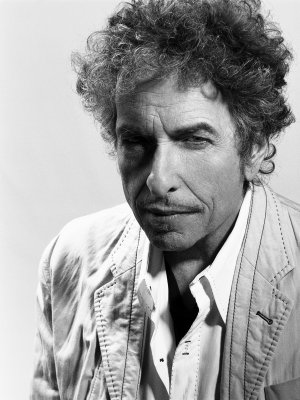It was a coincidence that, just weeks after writing a post about how finding an interesting rhyme could give birth to new ideas (read here), I finally got around to listening to Bob Dylan’s ‘Murder Most Foul’.
Weighing in at over 17 minutes, it’s monumental. I believe it’s the longest song Dylan’s ever released. He starts out, over dirge-like music, singing a story about John F. Kennedy’s assassination in 1963. He quickly expands out from that crime to a long wander through American culture (and especially popular music) since, from the sublime to the ridiculous.
What I’d like to discuss here is how he uses his rhymes. I counted 81 (!) couplets – that is, two adjacent lines that rhyme – in the song. Of those 81 rhymes, only 3 are not ‘true’ rhymes. All the rest, all 78, are true rhymes.
(A true, or ‘perfect’, rhyme is when then last syllable(s) of the rhyming words match exactly; with the preceding syllable on each, if any, being different. For example, from the song: ’surprise/eyes’, ‘coat/throat’, ‘clown/down’ are true rhymes… and there are 75 more.)
Two points here. This high percentage of true rhymes is extremely unusual these days. At this time (it was recorded in 2020) almost no one but Dylan writes using only true rhymes.
Dylan, as against the grain as ever, almost entirely resists the current ‘trend’ of looser rhyming (it’s actually more than a trend. I don’t think things will ever go back to what Bob D. is preserving). He may be the last great songwriter who has held onto true rhymes to this degree.
I can’t stress enough how uncommon this commitment is. It’s almost ironic that the most revolutionary songwriter of the last 60 years, the man who broke lyric writing wide open, would be the last of the traditionalists – in this way.
In other ways he’s still busting barriers – by how he uses his rhymes. Which brings me to my other point.
I can’t prove this; it’s speculation, but it sounds to me like he often grabs an intriguing rhyme first, counting on his stupendous craft and creativity to see what comes to mind, and then fills in around the rhyme something that’s both interesting and thematically relevant (and he doesn’t do it just on this song).
How else do you account for couplets like:
Play Etta James, too, play “I’d Rather Go Blind”
Play it for the man with the telepathic mind
Play John Lee Hooker, play “Scratch My Back”
Play it for that strip club owner named Jack
Guitar Slim going down slow
Play it for me and for Marilyn Monroe
(Note the Kennedy connections he filters in – Jack Ruby, Marilyn Monroe)
Play Oscar Peterson, play Stan Getz
Play, “Blue Sky”, play Dickey Betts
Play Hot Pepper, Thelonious Monk
Charlie Parker and all that junk
All that junk and, “All That Jazz”
Play something for the Birdman of Alcatraz
Play Buster Keaton, play Harold Lloyd
Play Bugsy Siegel, play Pretty Boy Floyd
Play the numbers , play the odds
Play, “Cry Me A River” for the Lord of the gods
Play Number Nine, play Number Six
Play it for Lindsey and Stevie Nicks
Play Nat King Cole, play, “Nature Boy”
Play, “Down In The Boondocks” for Terry Malloy
Play, “It Happened One Night” and, “One Night of Sin”
There’s twelve million souls that are listening in
Play, “Merchant to Venice” play, “Merchants of Death”
Play, “Stella by Starlight” for Lady Macbeth
Play, “Love Me Or Leave Me” by the great Bud Powell
Play, “The Blood-stained Banner” play, “Murder Most Foul”
He uses the rhymes to anchor his structure, as he always has, and from there lets his mind wander into a surreal dreamscape of singers, musicians, entertainers, fictional characters, and songs. Like in a dream, one gets the feeling anything or anyone might pop up. And often they do. The song is full of connections of all kinds – shocking, funny, absurd, strange, trivial, tragic.
He doesn’t make any point other than the assassination was ‘murder most foul’. He makes associations, somewhere between a collage, a reverie, and an elegy, concerning the history that was lived by him, by us, since the epochal day Kennedy was shot.
Give it a listen.
Let me know your thoughts in the Comments section below:

And please share on facebook etc. by clicking the tabs below the video:

Interesting, thanks Tony. I hadn’t noticed a move away from true rhyme. I always feel like a bit of a fraud if I don’t use them, though sticking to my guns can make maintaining a clear narrative bloody hard. As a result, lyrics can take me ages…
It’s heartening that Dylan, king of the couplet, isn’t compromising at all. Show us the way Bob!
Thanks, Peter!
Dylan’s methods show the limits of riming dictionaries, as he most often rimes phrases not just words. And while lots of us are as well read as Dylan,he, like Woody Guthrie, seems to be unusually wired so as to be extraordinarily prolix – his brain popping up connections even the thinking Dylan would never think of.
Thank you, Michael!